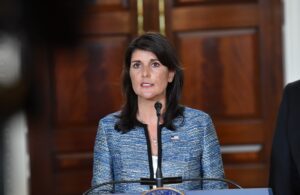The economic crisis caused by the coronavirus pandemic poses a triple challenge for tax policy in the United States. Lawmakers are tasked with crafting a policy response that will accelerate the economic recovery, reduce the mounting deficit, and protect the most vulnerable.
To assist lawmakers in navigating the challenge, and to help the American public understand the tax changes being proposed, the Tax Foundation’s Center for Federal Tax Policy modeled how 70 potential changes to the tax code would affect the U.S. economy, distribution of the tax burden, and federal revenue.
In tax policy there is an ever-present trade-off among how much revenue a tax will raise, who bears the burden of a tax, and what impact a tax will have on economic growth. Armed with the information in our new book, Options for Reforming America’s Tax Code 2.0, policymakers can debate the relative merits and trade-offs of each option to improve the tax code in a post-pandemic world.

Five Takeaways from the New Pillar One Documents
The OECD recently released a trove of new documents on a draft multilateral tax treaty. The U.S. Treasury has opened a 60-day consultation period for the proposal and is requesting public review and input.
7 min read
Most Successful Fiscal Consolidations Do Not Rely Solely on Tax Hikes
If tax increases are included in a package, international experience points toward raising consumption taxes, rationalizing tax expenditures, and broadening the tax base—not hiking income taxes.
6 min read
Federal Deficit Grew to $2 Trillion in FY 2023
Outside of the pandemic years, this year’s federal deficit is the highest in U.S. history. While tax revenue has increased about 28 percent since the pre-pandemic year 2019, spending has increased about 46 percent. Annual deficits are headed towards $3 trillion over the next few years.
3 min read
Nikki Haley’s Plan to Eliminate the Federal Gas Tax Would Be a Mistake
At the most recent Republican primary debate, former governor and United Nations ambassador Nikki Haley (R-SC) proposed eliminating the federal gas tax to lower fuel prices for consumers.
3 min read
Select Country-Level Revenue Estimates for Pillar Two
Pillar Two implementation is underway in many jurisdictions, and many governments are aiming to get their proposals approved before the end of 2023. However, estimating Pillar Two’s impact on government revenue is proving difficult. As a result, only a few countries have publicly presented their findings.
7 min read
Nonprofits are Financially Healthy and Doing Big Business
Can an organization rightfully be called a “nonprofit” if it almost always makes money? And what if most of that organization’s income comes from “business income,” should it legitimately be considered a “charity”?
7 min read
Tax Trends in European Countries
In recent years, European countries have undertaken a series of tax reforms designed to maintain tax revenue levels while protecting households and businesses from high inflation.
8 min read
Labor Share of Net Income is Within Its Historical Range
As increased political attention focuses on the state of the American worker, expect to see a resurgence of the argument that the labor share of income is in decline.
5 min read
USITC Report Highlights Trade-Offs of Using Tariffs
The assessment of the tariffs President-elect Donald Trump imposed in 2018 and 2019 is clear: the policies have had a negative effect on American’s welfare.
4 min read
BEFIT: One-Stop-Shop or One-More-Stop?
On 12 September, the European Commission released a proposal called “Business in Europe: Framework for Income Taxation” (BEFIT) and two associated proposals on transfer pricing and a Head of Office tax system.
6 min read